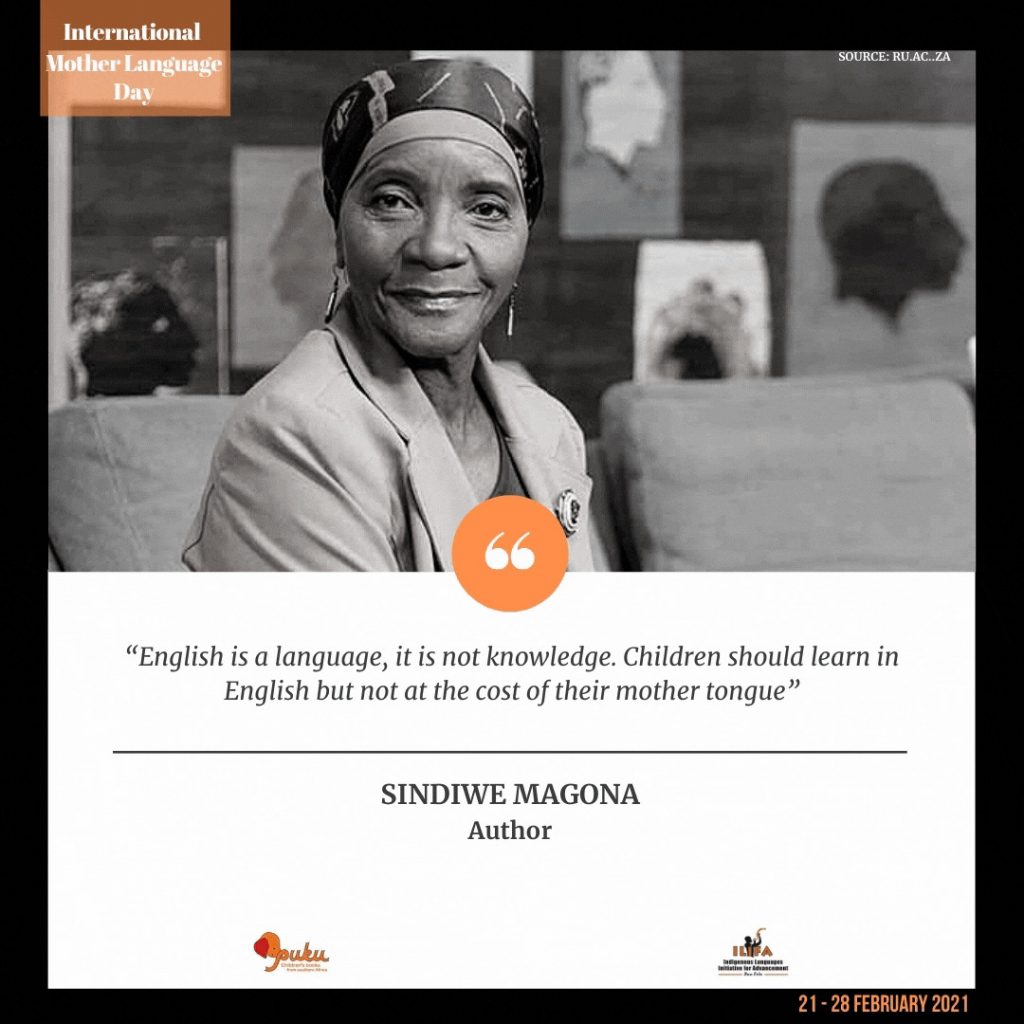Indigenous languages marginalised in South Africa, despite progressive constitution
By Mabutho “Kid” Sithole
We are a country in danger of committing linguicide. We want to take indigenous languages from the periphery to centre state. We will do so with like-minded organisations.
As we celebrate International Mother Language Day this month, we at the ILIFA Indigenous Languages Initiative for Advancement (ILIFA )are glad to note that the Department of Sports, Arts and Culture has declared the month of February as Language Activism Month. The linguistic challenges we face in our society certainly merit at the very least, a month-long campaign of heightened activism.
Despite a progressive language policy, our indigenous languages continue to be marginalized. We may be the majority in our country, but indigenous language speakers continue to be a cultural minority. There is a danger that our languages will be marginalized even further in the post-COVID-19 era and that the little investment that there was in indigenous languages will dwindle away, with grave consequences for our society.

The Covid-19 pandemic has wreaked havoc in our lives and caused misery and devastation to our society, but it has created an opportunity. It has forced increased uptake in virtual communication, making it easier and cheaper to organise meetings and consultations that reach huge audiences with little lead time and financial investment.
We at ILIFA, in partnership with the Puku Children’s Literature Foundation, will use this opportunity to continue the campaign to promote our languages, not just during Language Activism month, but throughout the year through a campaign of strategic discussions, through webinars, radio and social media. Our campaign will connect institutions and organisations, leading experts in the indigenous language ecosystem with voices on the ground, in a national conversation.
The main thrust of the conversation will be how do we get increased investment into our languages? Year in and year out we celebrate International Mother Language Day by articulating the same problems and not coming up with solutions.
We need to interrogate the indigenous language ecosystem and find answers to burning questions such as: What are the challenges faced by indigenous language professionals – academics, teachers, broadcasters? How can indigenous language content creators be supported in their quest to produce enduring and memorable content so urgently needed for the decolonisation of our education system? What are the economic benefits and employment potential of increased investment in indigenous languages?

At the formal launch of ILIFA held at the University of Johannesburg on International Mother Language Day in 2020, the guest of honour, Chief Justice Mogoeng Mogoeng said in his keynote address: “Every effort must be made to ensure that our mother tongue has a future; that our future generations have opportunities not only to hear stories in indigenous languages but to handle books and learn to read and write in it as well and to feel proud of it”. Puku will ensure that there is sufficient focus in our campaign on early childhood education, reading promotion and book development in indigenous languages. Puku will pay special attention to partnerships to create catalogues in indigenous languages and support for Ouma Katrina Esau’s efforts to save her language from extinction through children’s books.
ILFA and Puku will continue to actively pursue the partnership with UNISA and other academic institutions.
.Mabutho “Kid’ Sithole an actor and a cultural activist, he is ILIFA Founder and Chairperson.










